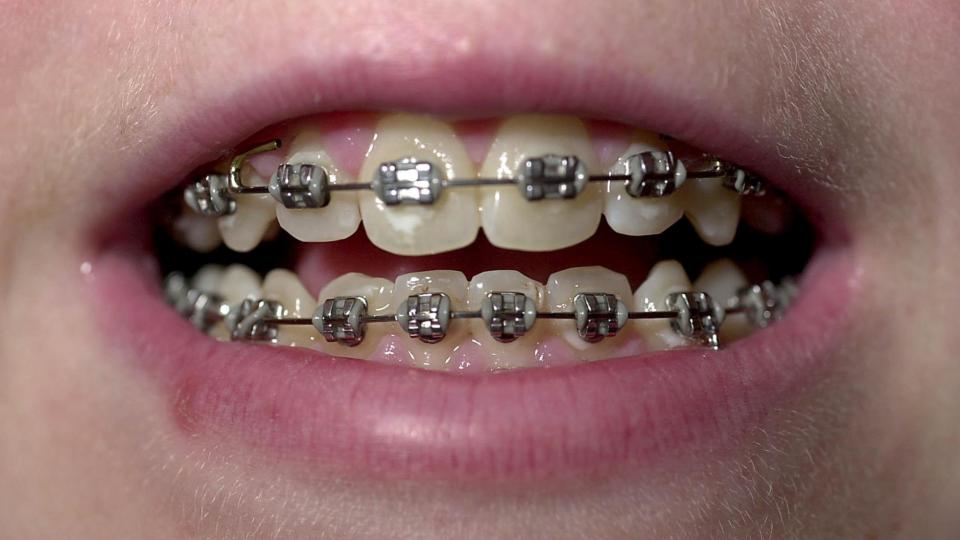Metal braces are a common orthodontic treatment designed to straighten teeth and improve dental alignment. While they offer significant benefits for both function and aesthetics, many people experience discomfort during their treatment. This article explores the pain associated with metal braces and provides helpful tips on how to manage and alleviate it.
The Reality of Metal Braces Pain
The pain and discomfort from Metal Braces in Dubai are a common concern for many patients. The braces themselves consist of metal brackets and wires that exert continuous pressure on the teeth. This pressure is essential for shifting teeth into their correct positions, but it can also cause soreness and sensitivity in the mouth.
Initial Discomfort
When metal braces are first applied, patients often experience a range of sensations from mild to moderate discomfort. This initial pain usually arises from the pressure exerted by the braces and the adjustment period as the mouth and teeth adapt to the new devices. This discomfort typically lasts for a few days and can be managed with over-the-counter pain relievers and soft foods.
Pain After Adjustments
Every few weeks, patients return to their orthodontist for adjustments. During these visits, the orthodontist tightens the wires or changes the bands, which can increase pressure on the teeth and lead to temporary pain. This adjustment period can cause increased sensitivity and discomfort as the teeth and gums adjust to the new pressure.
Effective Strategies to Alleviate Pain
Managing the pain associated with metal braces involves a combination of self-care techniques and professional guidance. Here are some strategies to help alleviate the discomfort:
Over-the-Counter Pain Relievers
Pain relievers such as ibuprofen or acetaminophen can be effective in reducing the discomfort caused by metal braces. These medications help to alleviate pain and reduce inflammation in the mouth. It's important to follow the recommended dosage and consult with a healthcare professional if you have any concerns about medication.
Orthodontic Wax
Orthodontic wax is a useful tool for reducing irritation caused by metal braces. By applying wax to the brackets and wires, you create a barrier between the metal and the soft tissues of your mouth. This can help prevent sores and reduce friction, making the braces more comfortable to wear.
Soft Foods
Eating soft foods can minimize discomfort, especially in the initial days after getting braces or after an adjustment. Foods like yogurt, mashed potatoes, and soups are gentle on the teeth and gums and can help avoid exacerbating any pain or sensitivity. Avoiding hard, crunchy, or sticky foods can also help prevent further irritation.
Rinsing with Salt Water
A warm salt water rinse can be soothing for sore gums and can help reduce inflammation. Mixing a teaspoon of salt with a cup of warm water and rinsing your mouth several times a day can provide relief and promote healing of any minor sores or irritations.
Cold Compresses
Applying a cold compress to the outside of your mouth can help numb the area and reduce swelling. This technique is particularly useful in the first few days after getting braces or after adjustments when pain may be more pronounced. Simply wrap ice or a cold pack in a cloth and apply it to the affected area for 15-20 minutes at a time.
Regular Oral Hygiene
Maintaining good oral hygiene is crucial for preventing and managing discomfort associated with metal braces. Brushing and flossing regularly can help prevent plaque buildup, which can lead to additional pain and complications. Special orthodontic brushes and flossers are available to make cleaning around the brackets and wires easier.
When to Seek Professional Help
While discomfort from metal braces is normal, there are times when it’s important to seek professional help. If you experience severe or persistent pain that doesn't improve with over-the-counter remedies, or if you notice any signs of infection such as swelling or pus, you should contact your orthodontist. They can assess the situation and make any necessary adjustments to alleviate your pain.
Potential Problems with Braces
Sometimes, pain or discomfort may be due to issues with the braces themselves, such as broken or loose brackets and wires. Regular check-ups with your orthodontist are essential to address these issues promptly and prevent further discomfort.
Allergic Reactions
Although rare, some patients may experience allergic reactions to the metal used in braces. If you suspect an allergy, discuss your symptoms with your orthodontist to explore alternative materials or solutions.
Conclusion
Understanding and managing the pain associated with metal braces can significantly improve your experience with orthodontic treatment. While some discomfort is inevitable, employing strategies such as using pain relievers, applying orthodontic wax, and eating soft foods can help alleviate symptoms. Regular communication with your orthodontist and maintaining good oral hygiene are also key components in managing pain and ensuring a successful treatment outcome. By following these tips and seeking professional guidance when necessary, you can navigate the challenges of metal braces with greater ease and comfort.





Comments